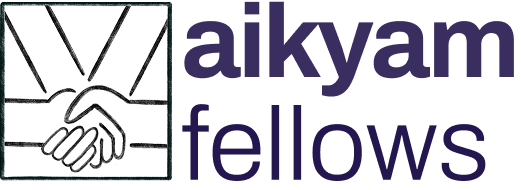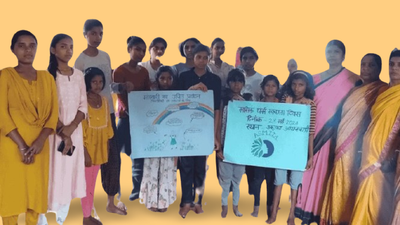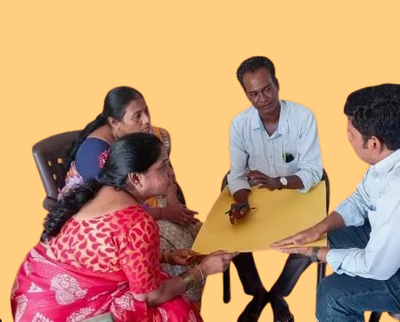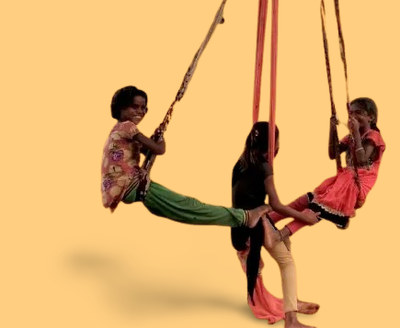Collective Uses Technology for Enabling Migrant Worker Rights
Co-creating a grievance resolution platform for migrant workers and labourers with Aajeevika Bureau & Working People’s Charter
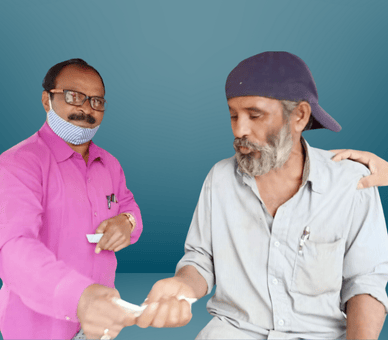
As workers in IT, we are used to the joy of getting our salary deposited to our banks like clockwork at the end of every month. We also have benefits ranging from health, pension to paid vacations. If we don't get those benefits, there are structured ways and processes (dedicated HR teams, committees, etc) to raise a grievance and get paid. This is life as a worker in the formal organized sector in India.
Have you wondered what it must be like to be a daily wage earner? Or a street vendor? Or a small and marginal farmer depending on a good monsoon to earn their livelihood? This is the other India. The India of the unorganised / informal sector. Employment in the informal sector is characterized by seasonality of employment, scattered workplace, no employer-employee relationship, poor working conditions, irregular and often long working hours, low-productivity and poor earnings, exposed to various forms of insecurity and health hazards, limited access to credit, legal protection and government support and lack of social security.
Wouldn't it be nice if they also had a platform to share their grievances and help get paid? Or get access to their rightful benefits? We ended up helping to build just that. Here is how it happened.
In late 2020, our friends from Aajeevika Bureau and Working Peoples' Charter (WPC) approached aikyam fellows to help build a digital platform that would aid in 'Mediation and Legal Aid for Informal Workers' in India. The pandemic made it difficult for trade unions and groups like Ajeevika and WPC to deliver support to these workers in distress in person. Lockdowns meant migrant workers were facing extraordinary hardships and needed urgent and important help.
The corporate world migrated swiftly from office to remote work thanks to digital infrastructures like Zoom, Slack and Shared docs. What about NGOs who go to the field to solve the problems of workers? How do we enable them to deliver their support remotely?
We began co-creating the solution by conducting multiple workshops with members of Aajeevika Bureau and Working People’s Charter. We built on the collective wisdom of those who were directly involved in mediation and dispute resolution between migrant workers and employers/contractors. Inputs from other stakeholders like legal aid workers, lawyers and individuals in distress further helped identify the pain points and define the process.
The collective team co-created a plan to scale a successful tele-support pilot run by Ajeevika Bureau in Udaipur, Rajasthan. Now, we needed something that could scale to multiple cities and allow for more partner NGOs and trade unions to come together.
We were all clear that the platform must be designed keeping the migrant worker in distress at the centre. And as a design principle, we should design what is best for the worker in distress. This gave us clarity while choosing features, design and interactions as we moved forward.
What are the benefits that we need from this platform?
We collectively mapped out the benefits and filled out the relevant features that would be required to deliver those benefits. Without this, we would have jumped right to the tools/technology without spending enough time to clearly imagine “what we need?” vs “what we want”.
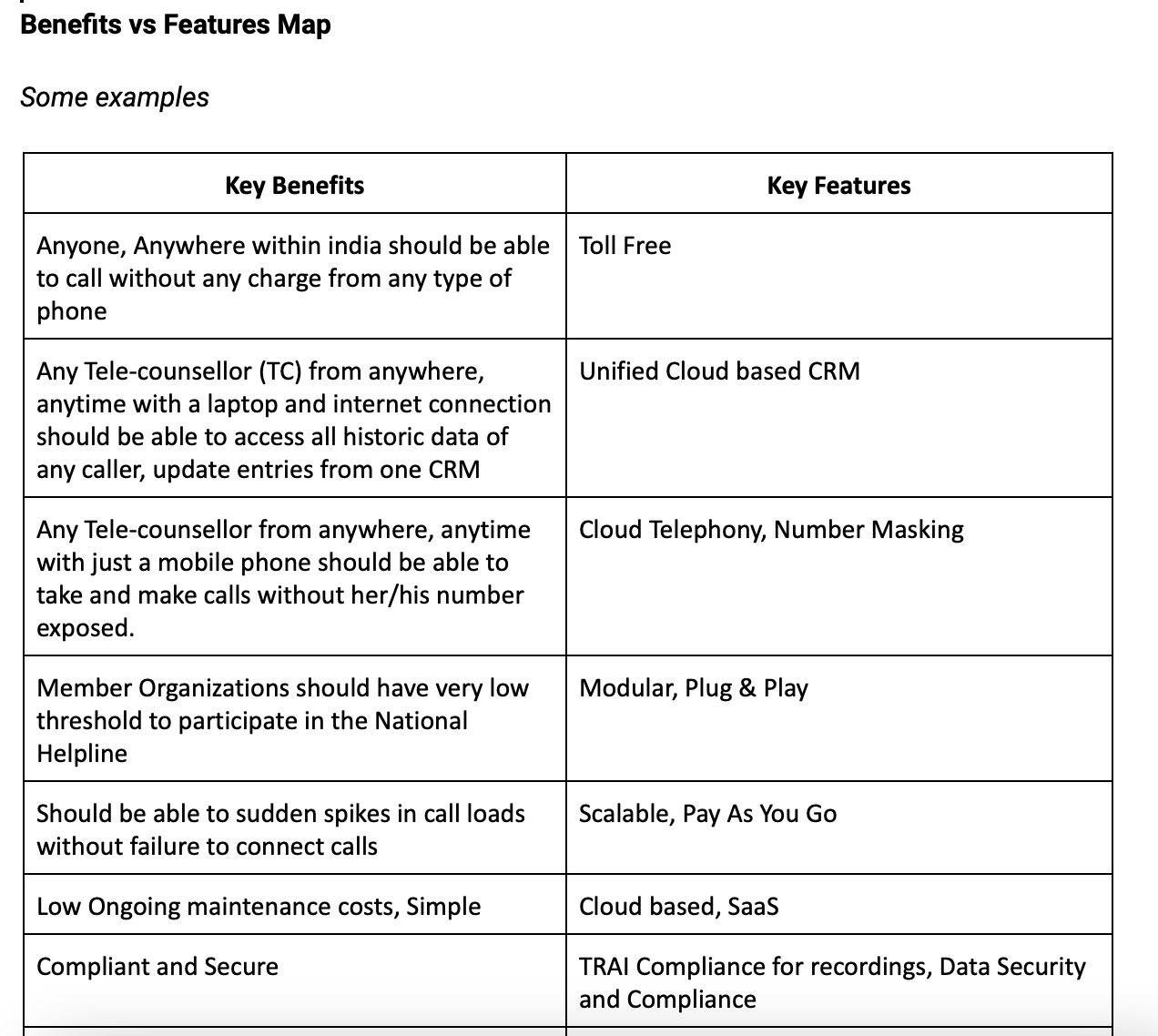
This helped us to create a simple platform solution to start.

Prototyping a Basic Workflow to deliver the following outcomes:
- Worker in distress calls the toll free number
- Tele-Counsellor records the details of the worker and the issue, provides immediate support on call (if applicable) and/or collaborates with stakeholders (worker, employer, field agent) to reach a resolution
Ensuring Financial Sustainability: We helped Ajeevika put together a technology component to their Grant Proposal to the Funder. This is an important step to build more support from funders for technology interventions and to ensure long term sustainability of the project.
Once the funding came through, we approached the team at ERPNext, which is a free and open-source integrated Enterprise Resource Planning software and Exotel, a cloud telephony platform and engaged with them to build the final platform. The team at fossunited.org provided support with building the MIS. We were amazed at how easy it was to build, deliver the benefits we needed through ERPNext.

Once we had the platform ready, aikyam fellows team trained tele-counsellors on everything from Exotel cloud telephony to updating the ERPNext instance. We continue to provide support as we scale.
Today, a partner NGO or trade union can create an account on LaborLine ERPNext and they will immediately get a cloud telephone number that they can use to take calls from workers in distress. They can take these calls from anywhere in India. Case details can be updated on an easy-to-use interface provided by ERPnext. We at aikyam fellows are honored to have served such an important and urgent need. Thank you WPC, Ajeevika for allowing us to be a part of this. A big thank you to the team (esp. Vishal, Kailash & Rushabh) at fossunited.org for supporting us with technology, hosting waivers and the team at Exotel for telephony discounts.
The Working People’s Charter and Aajeevika Bureau launched the National Helpline for workers on September 18, 2021 at the Press Club in Mumbai. The helpline, known as the India Labourline, has been operational since July 16, 2021 and is headquartered in Mumbai. In the last two months, the helpline has received 2,497 calls and provided mediation to 507 workers in distress from states like Delhi, Rajasthan, Uttar Pradesh, Haryana, Punjab, Jammu Kashmir, Madhya Pradesh, Odisha, Maharashtra, Karnataka, Kerala, Telangana and Tamil Nadu.
Labourline is a direct response to support the needs of migrant workers and all those working in the informal sector in India who were abandoned during the lockdown. It addresses the issues and bridges the gap in providing legal aid and mediation services for the problems faced by workers at the worksite.
Would you know of similar projects that helps migrant workers? Do let us know in the comments.
